Related Research Articles

Jamesetta Hawkins, known professionally as Etta James, was an American singer who performed in various genres, including blues, R&B, soul, rock and roll, jazz and gospel. Starting her career in 1954, she gained fame with hits such as "The Wallflower", "At Last", "Tell Mama", "Something's Got a Hold on Me", and "I'd Rather Go Blind". She faced a number of personal problems, including heroin addiction, severe physical abuse, and incarceration, before making a musical comeback in the late 1980s with the album Seven Year Itch.

Johnny Otis was an American singer, musician, composer, arranger, bandleader, talent scout, disc jockey, record producer, television show host, artist, author, journalist, minister, and impresario. He was a seminal influence on American R&B and rock and roll. He discovered numerous artists early in their careers who went on to become highly successful in their own right, including Little Esther Phillips, Etta James, Big Mama Thornton, Johnny Ace, Jackie Wilson, Little Willie John, Hank Ballard, and The Robins, among many others. Otis has been called the "Godfather of Rhythm and Blues".

Willie Mae Thornton, better known as Big Mama Thornton, was an American rhythm-and-blues singer and songwriter. She was the first to record Leiber and Stoller's "Hound Dog", in 1952, which became her biggest hit, staying seven weeks at number one on the Billboard R&B chart in 1953 and selling almost two million copies. Thornton's other recordings included the original version of "Ball and Chain", which she wrote.
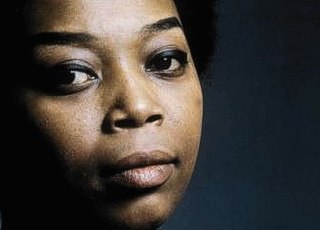
Doris Troy was an American R&B singer and songwriter, known to her many fans as "Mama Soul". Her biggest hit was "Just One Look", a top 10 hit in 1963. She was also one of the four female back up singers on The Dark Side of the Moon by Pink Floyd.
"I Almost Lost My Mind" is a popular song written by Ivory Joe Hunter and published in 1950. Hunter's recording of the song was a number one hit on the US Billboard R&B chart in that year.

Ivory Joe Hunter was an American rhythm-and-blues singer, songwriter, and pianist. After a series of hits on the US R&B chart starting in the mid-1940s, he became more widely known for his hit recording "Since I Met You Baby" (1956). He was billed as The Baron of the Boogie, and also known as The Happiest Man Alive. His musical output ranged from R&B to blues, boogie-woogie, and country music, and Hunter made a name in all of those genres. Uniquely, he was honored at both the Monterey Jazz Festival and the Grand Ole Opry.

"Rock Me Baby" is a blues standard that has become one of the most recorded blues songs of all time. It originated as "Rockin' and Rollin'", a 1951 song by Lil' Son Jackson, itself inspired by earlier blues. Renditions by Muddy Waters and B.B. King made the song well-known. When B.B. King's recording of "Rock Me Baby" was released in 1964, it became his first single to reach the Top 40 in Billboard magazine's Hot 100 chart.

Road Trips Volume 1 Number 4 is a two-CD live album by the American rock band the Grateful Dead. The fourth in their "Road Trips" series of albums, it was released on September 30, 2008. It was recorded at the Winterland Arena in San Francisco, California, on October 21 and 22, 1978.
"Thank You Pretty Baby" is 1959 R&B/pop hit by Brook Benton. The song was written by Brook Benton and Clyde Otis.
"(Mama) He Treats Your Daughter Mean" is a song written by Johnny Wallace and Herbert J. Lance and recorded by Ruth Brown in 1952. It was Brown's third number-one record on the US Billboard R&B chart and her first pop chart hit. Brown re-recorded the song in 1962, when it made number 99 on the US pop chart.
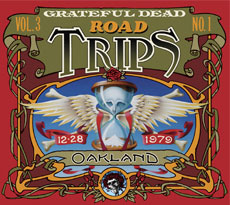
Road Trips Volume 3 Number 1 is a two-CD live album by the American rock band the Grateful Dead. The ninth in their "Road Trips" series of albums, it was recorded on December 28, 1979, at the Oakland Auditorium in Oakland, California, and contains the complete show from that date. A third, bonus disc included with some copies of the album was recorded two nights later, December 30, 1979, at the same venue. The album was released on November 10, 2009.

The Pretty Things is the self-titled 1965 release by the English rock band Pretty Things, which features mostly R&B and rock and roll cover versions. A re-issue released in 2000 on CD featured every track from both the American and British versions of the album.
"Bright Lights, Big City" is a classic blues song which was written and first recorded by American bluesman Jimmy Reed in 1961. Besides being "an integral part of the standard blues repertoire", "Bright Lights, Big City" has appealed to a variety of artists, including country and rock musicians, who have recorded their interpretations of the song.

"Baby What You Want Me to Do" is a blues song that was written and recorded by Jimmy Reed in 1959. It was a record chart hit for Reed and, as with several of his songs, it has appeal across popular music genres, with numerous recordings by a variety of musical artists.
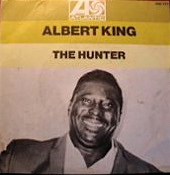
"The Hunter" is a blues song first recorded by Albert King in 1967 for his landmark album Born Under a Bad Sign. It was written by Stax Records' house band, Booker T. and the MGs, and Carl Wells. Along with "Born Under a Bad Sign" and "Crosscut Saw", "The Hunter" is one of King's best-known and most recorded songs. In 1969, Ike & Tina Turner had top 40 hit with the tune on the R&B singles chart.
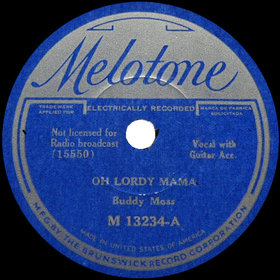
"Hey Lawdy Mama" is a Piedmont blues song recorded by Buddy Moss in 1934. The song became popular among jazz musicians with early recordings by Count Basie and Louis Armstrong. In 1943, a version recorded by Andy Kirk and His Twelve Clouds of Joy, with vocals by June Richmond, was a hit, reaching number four on the Billboard R&B chart.
"Milk Cow Blues" is a blues song written and originally recorded by Kokomo Arnold in September 1934. In 1935 and 1936, he recorded four sequels designated "Milk Cow Blues No. 2" through No. 5. The song made Arnold a star, and was widely adapted by artists in the blues, Western swing and rock idioms.

Road Trips Volume 4 Number 4 is a live album by the rock band the Grateful Dead. Subtitled Spectrum 4–6–82, it includes the complete concert recorded on April 6, 1982, at the Spectrum in Philadelphia, Pennsylvania. It also includes seven songs recorded the previous night at the same venue. The 16th of the Road Trips series of archival albums, it was released as a three-disc CD on August 1, 2011.
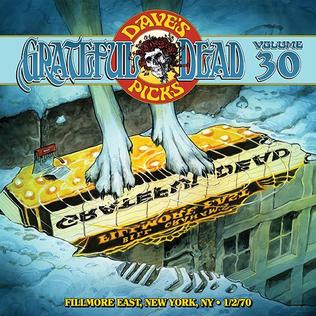
Dave's Picks Volume 30 is a 3-CD live album by the rock band the Grateful Dead. It contains the complete early and late shows recorded on January 2, 1970 at the Fillmore East in New York City, along with five songs from the band's performances at the same venue the following night. It was released on May 3, 2019 in a limited edition of 20,000 copies.
References
- ↑ "Pretty Mama Blues". Allmusic . Retrieved November 28, 2011.
- ↑ Whitburn, Joel (2004). Top R&B/Hip-Hop Singles: 1942-2004. Record Research. p. 267.
| | This R&B/soul music song-related article is a stub. You can help Wikipedia by expanding it. |